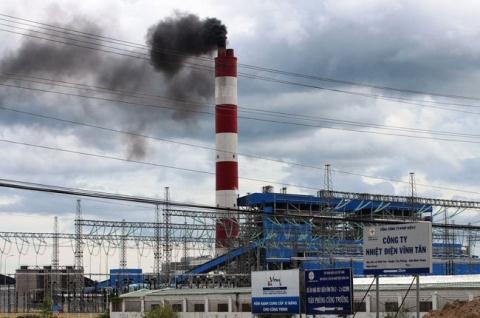[ad_1]

Vietnam accepts to live with coal thermopower
The government has released Resolution 120 on developing the Mekong Delta in a sustainable way in the context of climate change.
The resolution says Mekong Delta will focus on developing green industries with little emissions which don’t affect the natural ecosystem, and on developing renewable energy in association with the protection of forests and coastline.
|
Mekong Delta will focus on developing green industries with little emissions which don’t affect the natural ecosystem, and on developing renewable energy in association with the protection of forests and coastline. |
Tran Dinh Sinh, deputy director of GreenID (Green Innovation & Development Center), applauded the government’s resolution and recalled the PM’s speech at a conference held in Mekong Delta in September 2017 about the minimizing of the development of coal-fired thermopower.
“The PM also thinks it is necessary to restrict the firing of coal to run thermal power plants in Mekong Delta because this will affect the locality in the long term,” he said.
Citing the resolution, Sinh said it is necessary to reconsider the plan on developing coal-fired power plants in Mekong Delta.
Under the amended power generation plan from now to 2030 (Plan 7), 14 coal-fired thermopower plants with the total capacity of 18,268 MW will be built in the delta. These include four plants in Tra Vinh, 1 in Bac Lieu, 2 in Hau Giang, 2 in Long An, 3 in Soc Trang and 2 in Tien Giang.
Though investors are all committed to use the most advanced technologies for the plants to minimize the possible impact on the environment, they cannot convince local people on the necessity of the plants.
According to GreenID, when all the programmed power plants become operational in Mekong Delta, they will produce 70 million cubic meters of hot water (40oC) a day. This will be a threat to the underwater ecosystem and the aquatic resources in the locality.
“When we took field trips to power plants, we realized that many fishermen had to give up their jobs, or travel far for fishing,” he said.
The expert went on to say that the coal-fired thermal power production cost is not as low as reported. If counting expenses to settle environmental problems, the production cost would be 11 cent per kwh. However, policy makers have not addressed the issue of expenses.
The Energy Institute drafted the thermal power development plan and MOIT was examined the plan.
Vietnam will have to import large amounts of coal if it continues developing thermal power. The amount is predicted to reach 80 million by 2030.
RELATED NEWS
Vietnam considers lowering environmental standards on treatment of ash, slag
In Vietnam, renewable energy still not a priority
Kim Chi
[ad_2]
Source link
